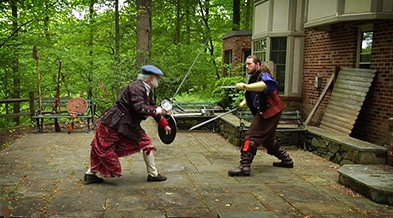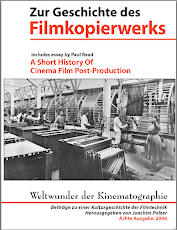 Film-Nr.: 271
Film-Nr.: 271Vorführungstermin: Donnerstag, 13. August 2009, 23.00 Uhr [VN27]
Themenschwerpunkt: Yes we can! — Obamas Amerika (8)
Englischer Titel: Beyond Greenaway: The Legacy
Originaltitel: Beyond Greenaway: The Legacy
Deutscher Titel: Das Erbe von Greenaway — Reichtum und Werte einer amerikanischen Familie über drei Generationen
Herkunft: USA 2009
Laufzeit: 67 min.
Sprachfassung: Englische Originalfassung
Regie: Sue Gilbert
Produzent: Sue Gilbert
Schnitt: Amy Enser, Leigh Kimball, Gary Mula (sound)
Kamera: Gabriel Miller, Joe Jacobs, Kevin Tomlinson
Musik: Eric Goetz
Produktion: Oombaria LLC Media Arts, Bellevue (Washington)
Website URL http://oombaria.com/
Premierenstatus: Internationale Premiere
Bisherige Aufführungen: Rhode Island International Film Festival; Providence, Rhode Island (USA) [WP]
Trailer: http://globians.blip.tv/file/2268261 + http://www.youtube.com/watch?v=o9wghSzochs
Kurzinhalt: Wie gehen die Erbengenerationen des "Alten Geldes" von Amerika mit ihrem Reichtum um? — Welche ethischen Einstellungen bilden sich heraus?
Englische Synopsis: What is the legacy of inherited wealth? Do we deserve it? Did we inherit our parents’ values along with the money? Sue Gilbert returns to explore the wealth and lifestyle issues first portrayed through the eyes of her elderly parents in her documentary “Greenaway” (1982), set on her family’s private island in Connecticut. In “Greenaway,” her parents were starkly frank about the meaning of wealth, the relevance of a servant class, and other topics such as the immanent decline of the American democracy into socialism “and slavery.” This time out, Gilbert compares her parents’ viewpoints to those of their children and grandchildren, lending each topic an almost holographic effect as it is viewed through this multigenerational lens. Whereas the elder Gilberts observed their lives and surroundings from a fixed perspective typical of their era (both were born in 1907), we see the next two generations wrestling with both sides of the coin of wealth, including seldom-discussed issues of deserving, class, envy and hiding. We also glimpse the stewardship that wealth necessitates, including circulating it among those less fortunate. “Beyond Greenaway” explores a range of diverse topics such as marriage and divorce, belief in God, drug therapy, and politics. In exploring common themes, this film transcends the uniquely personal to become universally relevant. We come to care for the family as ordinary people sharing their struggles, regardless of their advantages. Told from an insider’s perspective, “Beyond Greenaway” offers a unique snapshot of a largely hidden segment of the American population.
 >
>
Englische Werkbeschreibung: Almost 30 years ago, filmmaker Sue Gilbert returned to her childhood home in Connecticut to capture her parents and their vanishing way of life. Set on Greenaway Island, the family’s private enclave, her award-winning documentary “Greenaway” (1982) encapsulated the privileged world of old money as it was then. Her parents were starkly frank about the meaning of wealth, the relevance of a servant class, and other topics such as the travesty of having children who never marry and the immanent decline of the American democracy into socialism where “we will all be slaves.” In “Beyond Greenaway,” Gilbert compares and contrasts her parents’ viewpoints to those of their six children, now almost the age of her parents in the first film. She asks some new questions: what is the legacy of inherited wealth? Do they deserve it? Did they inherit their parents’ values along with the money? She also features their adult grandchildren, lending each topic an almost holographic effect as it is viewed through this multigenerational lens. Whereas the elder Gilberts observed their lives and surroundings from a fixed perspective typical of their era (both were born in 1907), we see the next two generations wrestling with both sides of the coin of wealth. The advantages of wealth are easy to imagine. It may be convenient to have your own plane and “a car and driver when you want it,” but what about the downsides of money - those seldom discussed issues of deserving, hiding, jealousy and fear? These aspects would never have occurred to the elder Gilberts, yet they comprise a darker side of the legacy of wealth. Heading off opportunists is, in John Gilbert’s words, “an occupational hazard.” Granddaughter Angela asks to be seen for who she is, “hopefully.” Brought up to work for their own living, it is riveting to hear how the Gilbert children were caught completely off-guard when their inheritance was triggered by the death of their mother in 1981. “We were all scrambling,” says Dan Gilbert. We see the stewardship that wealth necessitates, from managing it to passing it along to benefit others, whether through philanthropy or by sending disadvantaged children to college. No exploration of the wealthy would be complete without mentioning recreation, and here “Beyond Greenaway” literally soars. “My father is the keeper of the Eddystone light…” Sue Gilbert and her brother John sing a sea shanty at the wheel of a sailboat. Whether we’re watching the Gilberts sailing, acting, drumming in a band, sword fighting in period costume or performing aerobatic maneuvers in the sky, this family entertains with humor, skill and derring-do. “Beyond Greenaway” follows in the footprints of the earlier film by exploring a diverse range of topics such as marriage and divorce, belief in God, drug therapy, and politics. For example, the younger Gilberts are divided about the value of marriage as opposed to living together. “Neither of my parents has been married in my lifetime,” confides young Skye Gilbert, “so I viewed marriage as an oddity.” Yet the grandchildren are generally the ones who weigh in for marriage. The Gilbert children are frank about their upbringing on Greenaway Island. “I dreaded going home,” says Lee Gilbert, who felt he was always walking on eggshells. “I loved the parties,” enthuses Mary Gilbert, an actress. Are they upper class? Yes - “technically I’m a member of the upper class,” says John Gilbert. “No,” Mary disagrees, “I don’t think I know anyone who is.” Ultimately, class is defined as a feeling as well as a financial statistic. Director Sue Gilbert reveals that her mother had once hatched a plot “to kidnap Nixon.” Apparently even the U.S. President leaned too far to the left. The Gilbert children are united in their views about their parents’ political paranoia. They had to avoid talking about politics if at all possible. Sometimes generational differences escalate into open conflict, as when Racey Gilbert is expelled from Greenaway Island for joining the 1969 March on Washington. “They called me a traitor….” In the end, the love this family shares for one another is the glue that binds them beyond their differences. “I always knew she loved me,” says Racey, who sneaked back to the island to visit his mother when he knew she was dying. The best thing one can do, he advises, “is to pick the right parents.” We come to care for this family as ordinary people sharing their struggles, regardless of their advantages. They are warm, likeable, and honest. In exploring common themes, “Beyond Greenaway” transcends the uniquely personal to become engaging and universally relevant. Filmed with an insider’s perspective, this documentary offers a unique snapshot of a segment of the American population largely hidden from the media.

Director's Bio: Sue Gilbert is a writer/producer/director based in Seattle, USA. Gilbert studied film at Art Center College of Design in the 1970s, remaining in Los Angeles to work on commercials, corporate films and ABC After School Specials. In the early 1980s she produced and directed several short films as well as Greenaway, an award-winning feature documentary. Her shorts include A Dance Fantasy (1984), selected for exhibition at the International Children’s Film Festival in Gijon, Spain, and The Perfect Cup (1984), aired on HBO and on airplanes. She retired in 1985. Last year Gilbert returned to filmmaking to make Beyond Greenaway: The Legacy, her second feature film. She is passionate about films that tell compelling, unusual stories that are uplifting.
GLOBIANS DOC FEST BERLIN
August 12 - 17, 2009
Kino Toni, Antonplatz












Keine Kommentare:
Kommentar veröffentlichen
Hinweis: Nur ein Mitglied dieses Blogs kann Kommentare posten.